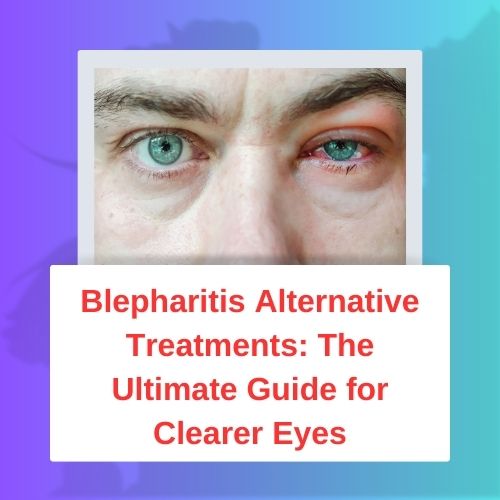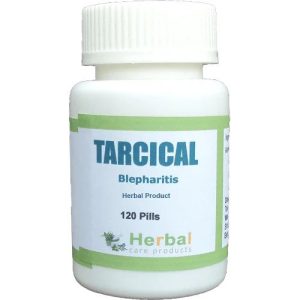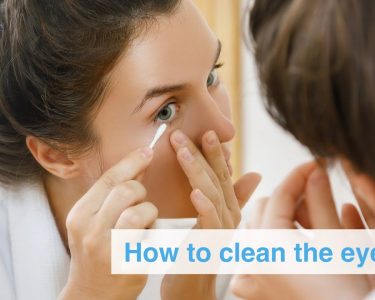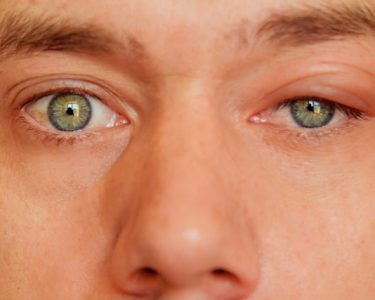Blepharitis is a common condition characterized by inflammation of the eyelids, often leading to redness, irritation, and discomfort. While conventional treatments like prescription medications and over-the-counter remedies are widely used, many people seek blepharitis alternative treatments to manage symptoms naturally and effectively. Various holistic approaches, lifestyle changes, and natural remedies that can help promote clearer, healthier eyes.
What is Blepharitis?
Blepharitis is an inflammation of the eyelids, typically affecting the area where the eyelashes grow. It is a common eye condition that can cause discomfort but is usually not contagious. Blepharitis is often chronic, meaning it can persist or recur over time.
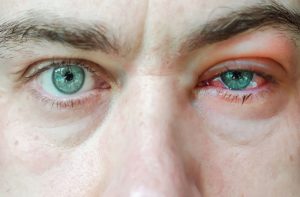
Related Articles: 10 Natural Treatment for Blepharitis
Blepharitis Common Symptoms:
- Redness and swelling of the eyelids
- Itchy or burning sensation in the eyes
- Crusty flakes or dandruff-like scales around the eyelashes
- Gritty feeling, like something is in the eye
- Excessive tearing or watery eyes
- Light sensitivity
- Blurred vision (in severe cases)
Blepharitis Causes:
Blepharitis can result from various underlying issues, including:
- Bacterial infections (e.g., Staphylococcus bacteria)
- Skin conditions like rosacea or seborrheic dermatitis
- Dysfunction of the Meibomian glands, which produce oils for tears
- Allergies to cosmetics or environmental factors
- Mite infestations, such as Demodex mites on eyelashes
Blepharitis Types:
Blepharitis, a common inflammatory condition affecting the eyelids, is classified into several types based on its cause and location. Here’s an overview:
1. Anterior Blepharitis
This type affects the outer edge of the eyelids, where the eyelashes are attached. It is usually caused by bacteria (often Staphylococcus aureus) or scalp dandruff (seborrheic dermatitis).
Related Articles: How to Cure Blepharitis Fast and Naturally with Herbal Remedies
Symptoms:
- Redness and swelling of the eyelid margins
- Crusting at the base of the eyelashes
- Itching or burning sensation
Causes:
- Bacterial infections
- Skin conditions like seborrheic dermatitis
2. Posterior Blepharitis
This form involves the inner edge of the eyelids (the part that touches the eyeball) and is linked to issues with the meibomian glands, which produce oils for the tear film.
Symptoms:
- Oily or greasy eyelid margins
- Irritated eyes with a gritty sensation
- Increased sensitivity to light
Causes:
- Meibomian gland dysfunction (MGD)
- Skin conditions such as rosacea
3. Mixed Blepharitis
This type combines features of both anterior and posterior blepharitis. It includes symptoms from both categories and requires a comprehensive treatment approach.
4. Demodex Blepharitis
This type is caused by Demodex mites, tiny parasites that live in hair follicles and sebaceous glands. It is more common in people with weakened immune systems or existing skin conditions.
Related Articles: Natural Remedies for Blepharitis Affecting the Eyelids
Symptoms:
- Cylindrical dandruff around the base of eyelashes
- Eyelash loss (madarosis)
- Persistent eye irritation
How to Treat Blepharitis Naturally
Blepharitis, an inflammation of the eyelids, can be effectively managed through natural remedies that focus on reducing irritation and maintaining proper eyelid hygiene. One of the most effective natural treatments is warm compresses. Applying a warm compress to the affected area helps to loosen crusts and promote better oil flow from the meibomian glands, reducing inflammation and soothing discomfort. Additionally, gentle eyelid scrubs using diluted baby shampoo or a mixture of water and mild soap can help remove debris and bacteria, preventing further irritation and infection.
Another natural approach involves dietary adjustments and supplements. Omega-3 fatty acids, found in fish oil, flaxseed, and walnuts, are known to reduce inflammation and improve gland function in the eyelids. Incorporating these into your diet or taking them as supplements can provide relief from blepharitis symptoms. Maintaining a balanced diet rich in vitamins A, D, and E also supports overall eye health. Regular eyelid massages can stimulate the oil glands and prevent blockages, contributing to long-term relief from blepharitis.
Top Blepharitis Alternative Treatments
1. Warm Compress Therapy
A simple and effective treatment, warm compresses can:
- Loosen clogged oils in the glands
- Reduce swelling and discomfort
- Improve blood circulation to the eyelids
How to Use: Soak a clean washcloth in warm water, wring out the excess, and place it over closed eyes for 5-10 minutes. Repeat twice daily for best results.
2. Tea Tree Oil Cleansing
Tea tree oil has natural antibacterial and anti-inflammatory properties, making it a popular Herbal Remedy for Blepharitis caused by mites or bacteria.
How to Use:
- Dilute tea tree oil with a carrier oil (like coconut or olive oil) in a 1:10 ratio.
- Apply the mixture to a cotton swab and gently clean the eyelid margins.
- Rinse thoroughly with warm water.
Note: Always use diluted tea tree oil to avoid irritation.
3. Omega-3 Fatty Acids
Omega-3 supplements can help reduce inflammation and improve the quality of tear film, addressing dry eye symptoms often associated with blepharitis.
Sources:
- Fish oil (salmon, mackerel, sardines)
- Flaxseed oil
- Chia seeds
Incorporating these into your diet or taking high-quality supplements can support overall eye health.
4. Aloe Vera Gel
Aloe vera is known for its soothing and moisturizing properties. It can help reduce irritation and inflammation caused by blepharitis.
How to Use:
- Apply a small amount of pure aloe vera gel to the eyelid margins using a clean cotton swab.
- Leave it on for a few minutes before rinsing with warm water.
5. Probiotics
Imbalanced gut health can exacerbate inflammation, including in the eyelids. Probiotic-rich foods or supplements may help reduce symptoms by improving gut microbiota balance.
Related Articles: What is the Latest Treatment for Blepharitis?
Sources:
- Yogurt
- Kefir
- Sauerkraut
- Probiotic capsules
6. Lid Hygiene with Baby Shampoo
Regular eyelid hygiene is essential for managing blepharitis. Mild baby shampoo is gentle enough to cleanse the eyelids without causing irritation.
How to Use:
- Mix a drop of baby shampoo with warm water.
- Use a cotton swab or clean cloth to gently clean the eyelid margins.
- Rinse thoroughly.
7. Manuka Honey
Manuka honey is rich in antimicrobial properties and can be used to manage bacterial infections contributing to blepharitis.
How to Use:
- Apply a thin layer of medical-grade manuka honey to the eyelids.
- Leave it on for 10-15 minutes before rinsing with warm water.
8. Castor Oil
Castor oil is an excellent natural lubricant and anti-inflammatory agent. It can help soothe irritation and prevent eyelid crusting.
How to Use:
- Apply a drop of pure castor oil to a clean cotton swab.
- Gently massage it onto the eyelids before bedtime.
9. Chamomile Compress
Chamomile has natural calming properties that can reduce swelling and irritation.
How to Use:
- Steep chamomile tea bags in hot water, then cool to a comfortable temperature.
- Place the tea bags over closed eyes for 10-15 minutes.
10. Dietary Adjustments
Inflammatory foods can worsen blepharitis symptoms. Switching to an anti-inflammatory diet rich in fruits, vegetables, and whole grains can make a noticeable difference. Avoid processed foods, sugary snacks, and excessive caffeine.
When to See a Doctor
While these alternative treatments can be effective, you should consult an eye specialist if:
- Symptoms worsen or persist despite treatment
- You experience vision changes
- There is severe pain or swelling
Final Thoughts
Blepharitis can be a persistent condition, but with the right blepharitis alternative treatments, you can effectively manage symptoms and improve your eye health. By incorporating these natural remedies into your routine, you can enjoy clearer, more comfortable eyes. Always prioritize proper hygiene and consult a healthcare professional for personalized advice.
Take control of your eye health today—your clearer eyes await!

